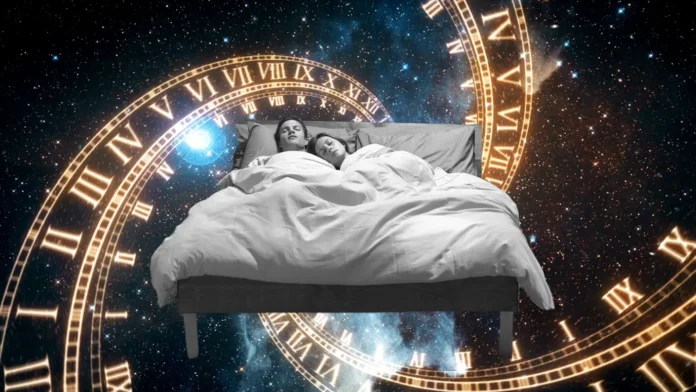
Dreams have captivated the human imagination since time immemorial, offering a mysterious window into the subconscious. Throughout history, dreams have been believed to hold prophetic powers, providing glimpses of the future. But do they genuinely predict what is to come?
In this comprehensive analysis, we delve into the fascinating world of dreams and their potential connection to future events. From ancient civilizations’ interpretations to modern scientific theories, we will explore the enigma of precognitive visions. Brace yourself for a journey that traverses ancient wisdom, cutting-edge research, and the complexities of the human mind.
Historical Perspectives on Interpretation
The roots of interpretation can be traced back to ancient civilizations such as the Egyptians, Greeks, and Native Americans. These cultures revered them as divine messages, guiding decision-making, and foreseeing significant events, all contributing to the rich and varied meaning of dreams. Dream oracles were consulted before major undertakings, reflecting the profound belief in their predictive potential.
In the Middle Ages, visions became intertwined with religion and spirituality, with religious figures experiencing the divine ones that held immense meaning and significance. As the Renaissance dawned, visions were examined more analytically by prominent figures like Freud and Jung, leading to the development of modern analysis, further unraveling the profound meaning behind our nocturnal visions.
Scientific Theories

In the quest to understand them, science has put forth intriguing theories on their purpose. One prominent theory posits that they serve as a form of mental housekeeping, allowing the brain to process and consolidate memories and experiences. Another suggests that this process enhances creativity and problem-solving abilities.
Additionally, visions may serve as a simulation platform, preparing us for potential challenges in waking life. However, these theories primarily focus on their role in personal growth rather than predicting the future.
The Phenomenon of Precognitive Dreams Explained
Precognitive dreams, often considered the most enigmatic type, supposedly offer glimpses of events yet to unfold. They can be intensely vivid, leaving a lasting impression. People report dreaming of accidents, natural disasters, or even chance encounters before they happen.
While these anecdotes are intriguing, skeptics argue that such instances are mere coincidences, given the vast number we experience in a lifetime. To explore the reality of precognition in them, we must turn to scientific studies and empirical evidence.
Analyzing Studies Linking Dreams to Future Events

Several studies have attempted to investigate this phenomenon scientifically. While some researchers claim to have found statistically significant results suggesting a weak link between them and future occurrences, others have failed to replicate these findings.
One challenge in studying prediction is the subjective nature of the content and its interpretation. Despite mixed results, these studies provide valuable insights into the complexities of the human mind and the elusive nature of its predictive potential.
Skeptical Viewpoints on Prediction Validity
Skepticism surrounding this prediction is well-founded, as anecdotal evidence and selective recall often shape people’s beliefs in their prophetic visions. The brain’s ability to create patterns from random events, known as confirmation bias, can reinforce the perception that a vision accurately predicted the future.
Moreover, the human memory’s malleability can lead to the distortion of details to fit real-life events. Critical thinking is essential when evaluating predictions, as it helps distinguish genuine foresight from the tricks the mind can play.
Unraveling the Role of the Subconscious

Unraveling the role of the subconscious in dreaming is a fascinating journey into the depths of the human mind. Dreams serve as a canvas upon which the subconscious paints intricate images and stories, revealing hidden thoughts, emotions, and desires. The subconscious mind processes daily experiences and emotions, often expressing them symbolically through dreams.
It acts as a reservoir of memories, fears, and aspirations, influencing dream content in profound ways. Understanding the subconscious in dreaming is key to comprehending the potential predictive nature of dreams, as it may hold the key to intuitive insights and subtle foresight that evade our conscious awareness.
Cultural and Spiritual Beliefs Surrounding Prophetic Dreams
Cultural and spiritual beliefs play a significant role in shaping people’s interpretations. In many cultures, they are still considered a powerful means of communication with the divine or ancestors. Shamans and spiritual leaders are often sought for interpretation and prophecy.
The richness of these beliefs highlights the profound impact of cultural conditioning on perception. As we explore the predictive aspects, it is essential to appreciate the diversity of perspectives surrounding this phenomenon.
The Impact of Personal Beliefs on Interpretation

The impact of personal beliefs on dream interpretation is profound and can shape how individuals perceive their dreams. Those with a penchant for the mystical or supernatural may readily embrace the idea of dreams having prophetic qualities, attributing them with predictive power.
On the other hand, those with a scientific or skeptical mindset are likely to dismiss such notions as mere chance occurrences. The interplay between personal beliefs and dream analysis is crucial when delving into the validity of precognition in dreams. Our beliefs act as filters through which we interpret and assign meaning to our nocturnal experiences, underscoring the significance of maintaining an open and discerning mind when exploring the enigmatic realm of dream prediction.
Practical Tips for Documenting and Analyzing Patterns
For those intrigued by the potential to predict the future, keeping a journal is a valuable practice. Documenting them regularly can reveal patterns, recurring themes, and potential precognitive elements.
Recording details immediately after waking up prevents memory distortion. Additionally, consulting with experts in analysis can provide deeper insights into the symbolism and subconscious processes at play in one’s dreams.

Concluding Remarks
In conclusion, they remain an enigmatic aspect of human experience. While history is replete with instances of prophetic dreams and cultures that venerate their predictive potential, the scientific community remains divided on the reality of precognition. As we navigate the realms of the subconscious and cultural beliefs, it is vital to approach analysis with a balanced and critical mindset.
They may not be crystal balls foretelling the future, but they undoubtedly offer a unique gateway to understanding ourselves and the intricacies of the human mind. Whether predictive or not, they continue to be a source of wonder, fascination, and self-discovery.








